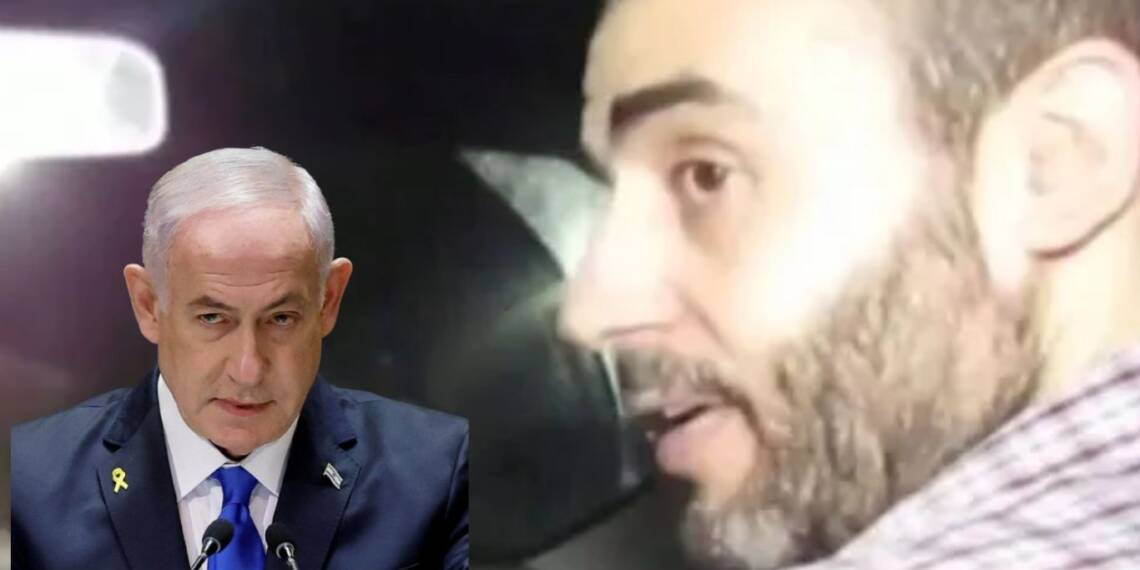Israel announced on Wednesday that its military had killed Mohammed Sinwar, the presumed leader of Hamas in Gaza and the younger brother of Yahya Sinwar, the mastermind of the October 2023 attacks. Prime Minister Benjamin Netanyahu told the Israeli parliament that Sinwar was eliminated as part of a continued effort to crush Hamas’s leadership.
“We drove the terrorists out of our territory, entered the Gaza Strip with force, eliminated tens of thousands of terrorists, eliminated… Mohammed Sinwar,” Netanyahu said.
While Hamas has not officially confirmed Mohammed Sinwar’s death, Israeli media reports said he was targeted in air strikes in southern Gaza earlier in May.
Who Was Mohammed Sinwar?
Mohammed Sinwar rose to prominence after his brother, Yahya Sinwar, was killed by Israeli forces in October 2024. Unlike other top Hamas leaders based abroad, Mohammed stayed in Gaza and operated underground, earning the nickname “The Shadow” due to his secretive life.
He reportedly played a major role in Hamas’s Khan Younis Brigade and was linked to the 2006 abduction of Israeli soldier Gilad Shalit, whose release came in a massive prisoner exchange in 2011. Mohammed had reportedly insisted on including his brother Yahya in the deal.
Despite being a wanted man for years, he remained elusive, avoiding public appearances — even skipping his father’s funeral to avoid being identified.
Leadership Void in Hamas
With Mohammed Sinwar’s death, and earlier killings of Hamas military chief Mohammed Deif, political bureau head Ismail Haniyeh, and Yahya Sinwar, Israel claims it has nearly decapitated Hamas’s leadership.
However, analysts say Izz al-Din Haddad, a commander in northern Gaza, might step up. Yet, he lacks the same stature or recognition as the Sinwars. Many believe Mohammed’s removal could create a power vacuum difficult for Hamas to fill.
Ongoing Humanitarian Crisis in Gaza
While Israel celebrated this military milestone, Gaza continued to suffer under war and starvation. The United Nations condemned the role of the Gaza Humanitarian Foundation (GHF) — a group backed by the U.S. and Israel that is operating outside the UN-led aid system.
On May 27, chaos erupted at a GHF food distribution site in Rafah, injuring 47 people, according to the UN. A Palestinian medical source reported at least one death. The UN Human Rights Office blamed Israeli gunfire for the injuries, but Israel’s military denied shooting at civilians, saying soldiers only fired warning shots into the air.
GHF denied the gunfire claims and said its operations would continue. It distributed over 840,000 meals and eight aid trucks on May 28, and plans to open more sites across Gaza.
The Gaza Health Ministry reported that Israeli strikes killed 16 people on May 28 alone. Since the end of the March 18 ceasefire, 3,924 people have died in Gaza, taking the war’s total death toll to 54,084, mostly civilians.
Hostage Crisis and Protests in Israel
Back in Israel, families of hostages held by Hamas since the October 7 attack protested in Tel Aviv, marking 600 days of war. Some demanded a ceasefire, accusing the government of endangering hostages’ lives.
One former hostage, Arbel Yehud, told reporters, “When Israel blows up deals, it does so on the heads of the hostages. Military actions do not save them — they endanger them.”
As war continues with no clear end in sight, the cost in leadership, civilians, and hope is growing on both sides.








